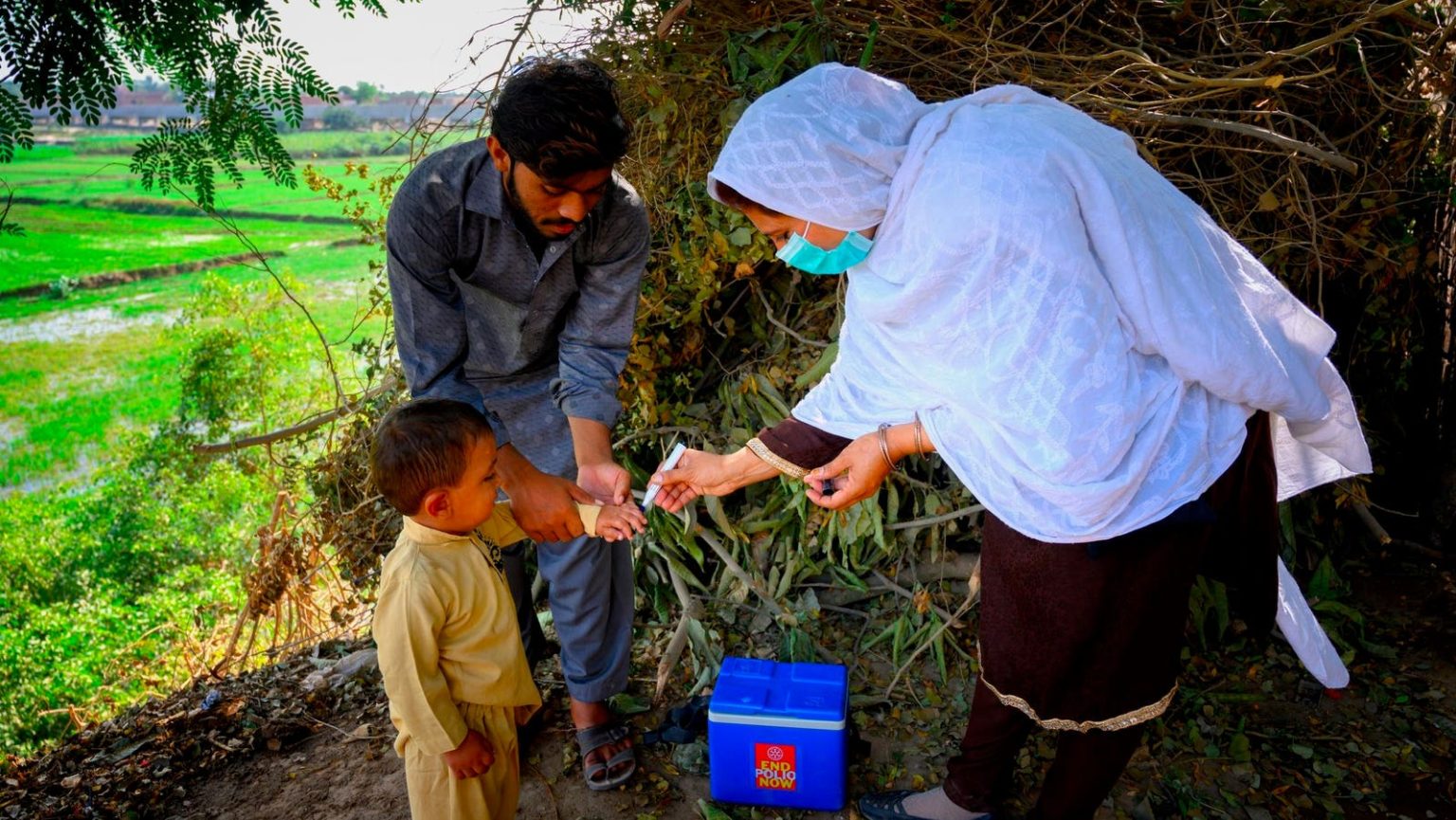With so much conflict, division and crisis happening in the world today, it is easy to despair and think that the individual interventions that add up to progress in the fight against poverty and equality don’t matter. They do.
Amidst the doom and gloom narratives that dominate our daily lives, it is worth taking stock of some of the success stories that are quietly unfolding below the radar. After all, real stories give us hope. They show us that our actions do make a difference because they have made a difference. Such stories can motivate us further to each do our small part in encouraging a better future for all.
Look at how far we’ve come in areas like the effort to eradicate polio — the very first campaign I got involved in with Global Citizen over a decade ago — and the power of one vaccine to save a life that might otherwise be threatened by an infectious disease that causes paralysis and death.
While I’m incredibly fortunate that my child, due next month, will have access to the full range of newborn vaccines, including against polio, not all children around the world do. That’s why for many years governments, ordinary citizen advocates and especially Rotarians have been proud to support the Global Polio Eradication Initiative (GPEI) and its partner organizations, WHO, UNICEF, Rotary International, The Bill and Melinda Gates Foundation, Gavi the Vaccine Alliance, and Centers for Disease Control and Prevention.
Thanks to their collective leadership of this remarkable partnership, polio now stands on the brink of being just the second human disease in history to be eradicated. Just 7 cases of wild poliovirus have been reported so far this year.
For me personally, the story goes back to 2011 and Perth, Australia, where I’m from. I met for the first time this man, David Goldstone, a Rotarian living in Perth. Over coffee I told David that Global Citizen had asked me to lead a campaign to support polio eradication efforts but, having been born after the last epidemics here in Australia, I knew little about the disease.
David told me, “Let me tell you a story about polio. Let me tell you a story about my friend, John.”
One day John was walking down the terrace in Sydney when he collapsed. When he awoke some time later, he found himself in a hospital bed, paralyzed from the waist down after contracting polio. The first person standing in front of him was the Chief Medical Officer who told John he would never walk again.
John responded with three words, “Yes, I will.”
Over that coffee, David recounted to me how John slowly but surely set out to prove his doctors wrong and slowly learnt how to walk again. He never fully recovered — when his kids would run up to him, they would say, “Daddy, pick up.” He would say, “I can’t do that.”
But he went on to become a successful businessman and joined Rotary, convinced he had to do his part to end polio. When Australia went from the pound to the dollar, he went to the old mint, got all the pennies, and did a fundraising campaign called pennies for polio, raising over $100,000.
At the end of that coffee, David outstretched his hand and told me, “I’m sorry.” I thought, “What do you mean, ‘you’re sorry’?”
At that moment, David pulled the chair beside me to one side and revealed a caliper clasped to his leg to help him walk. He said, “It wasn’t John who collapsed all those years ago, it was me, and I don’t want anyone’s pity. I just want to eradicate this disease once and for all.”
He continued, “We need innovative new ideas and we need you because you see, those old blokes are not like us young fellas.”
I’ve never forgotten the personal impact that Rotary International, and that one Rotarian, had on me. Since the late eighties, Rotary has been at the forefront of the global polio eradication effort, raising millions upon millions of dollars and leading advocacy for a polio free world.
During a field visit with Rotary earlier this year to the Pacific island nation of Kiribati, I had the chance to see Rotary-funded health programs in action. In parts of the Pacific, nearly 1 in 18 children die from vaccine preventable diseases before their fifth birthday.
On the flight home, I could not help but think back to David, who sadly passed away a few years ago. He would be so proud I thought that polio had been reduced by 99.9%, leaving a mere handful of cases in only two remaining endemic countries.
Today is World Polio Day, a day each year when polio survivors and advocates around the world raise their voices to celebrate progress made and call on world leaders to do what’s needed to finish the job.
Right now, the GPEI still faces a $1 billion funding gap in its strategy to end polio by 2026, and needs governments and other donors to step up. Considering the many challenges and political pressures facing governments, it can be easy to throw up your hands and say, “There’s no money.” But when the world decides a cause is worth fighting for and the political will is there, you’d be surprised what’s possible.
This World Polio Day, I’m hopeful we can achieve a polio-free world in the years to come. And that would be a reason to be hopeful for the future.
Read the full article here





